Remember the movie “Ready Player One”? Where a young boy sets out for a reality-bending treasure hunt through an expansive virtual reality universe.
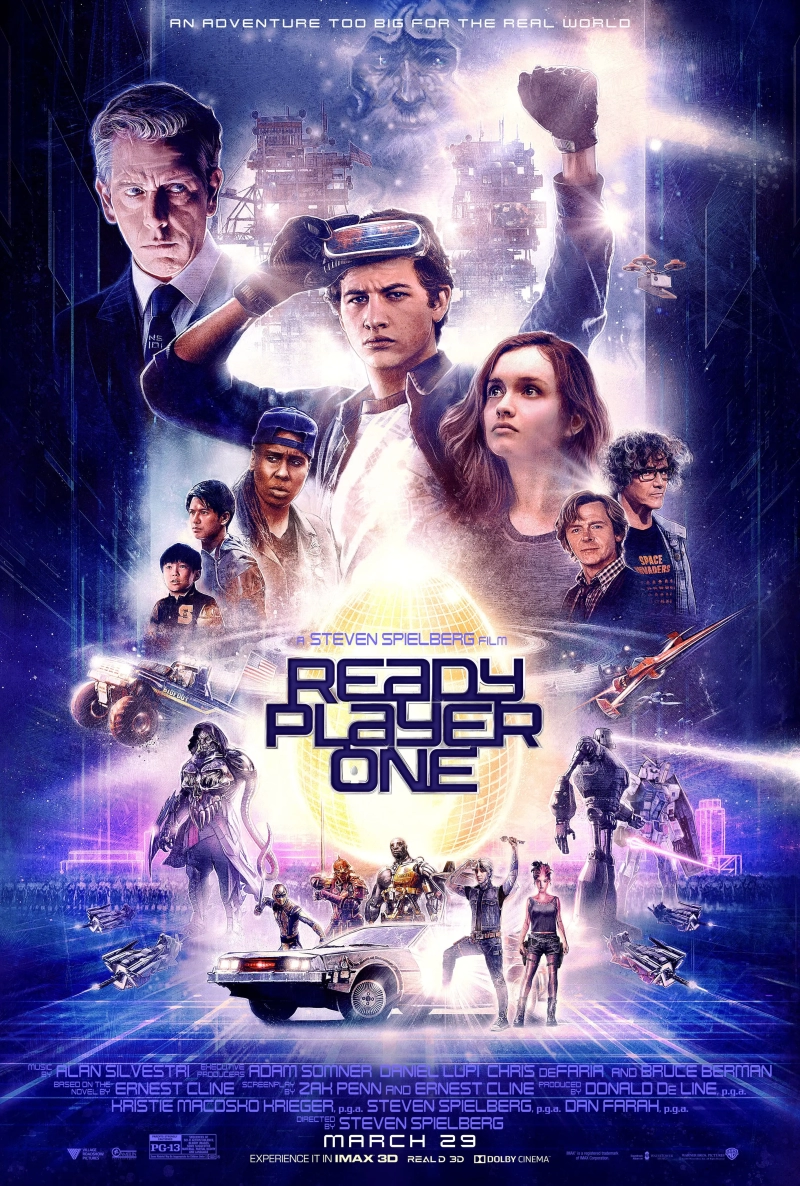
Well, guess what? That future isn’t science fiction anymore; it’s knocking on our digital doors in the form of the metaverse.
In a world where physical and virtual realities are blending more than ever, businesses are increasingly turning towards the next big thing in digital marketing: the Metaverse Marketing Strategy.
Table of Contents
What Exactly Does Metaverse Mean?
Buzzing in the digital world these days is the term “Metaverse.” Imagine an enormous, shared virtual space formed by the blend of virtually enhanced physical reality and a persistent virtual space.
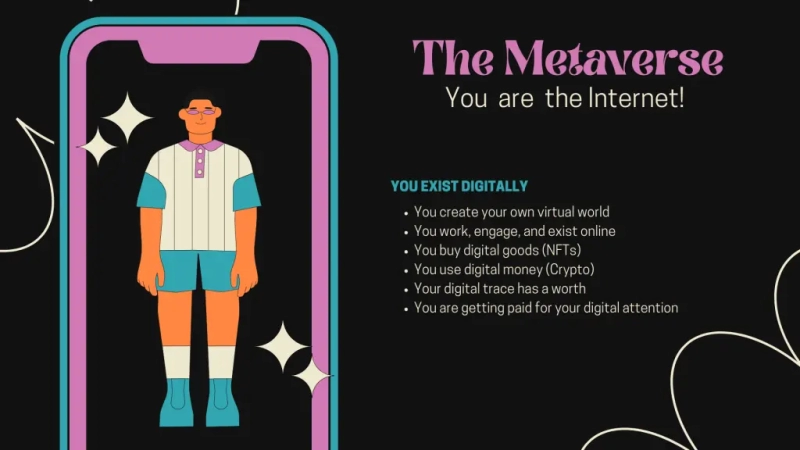
Are the terms physical reality and virtual space going above your head, don’t worry in simple terms picture yourself stepping into a computer-generated world, interacting with the environment, and connecting with other users in real time. It’s like your favorite video game, but you are an active participant instead of playing a character.
This radical concept is redefining how businesses are promoting their offerings.
Key Features Of The Metaverse
- Immersion: The Metaverse is designed to be fully immersive. This is achieved through the use of various technologies such as virtual reality (VR) and augmented reality (AR).
- Interactivity: You’ll be able to interact with objects, other users, and the environment itself.
- Persistence: The Metaverse is not a game that you just log in and out of. This means that your virtual assets and progress will always be there waiting for you when you return.
- Avatars: Metaverse represents you through a digital avatar. This avatar can be anything you want it to be, from a realistic representation of yourself to a completely fictional character.
Why Does Your Brand Need A Metaverse Marketing Strategy?
The answer is simple- it’s where your audience is heading. By establishing a presence in the metaverse, your brand can tap into a new dimension of consumer engagement.
Imagine a world where your customers can try on your latest collection in virtual fitting rooms. Imagine launching a product, hosting a conference, or even conducting a live Q&A session without even leaving your home.
Your logo isn’t just plastered on billboards; it’s woven into the fabric of the virtual world, seamlessly integrated into interactive games and challenges.
Brands that embrace metaverse commerce are not just selling products; they are crafting memorable and interactive shopping journeys that leave a lasting impression.
This is the power of metaverse marketing strategy: forging deeper connections with audiences in a whole new dimension. And yes, right now is the time to jump in. Here’s why:

1. The Early Bird Catches the Metaverse Worm:
The metaverse is still evolving. This presents a pristine canvas for brands to be pioneers, innovators, and storytellers. Early adopters who experiment and build authentic experiences will have the first-mover advantage, establishing themselves as trusted guides in this brave new world.
2. Gen Z and Beyond are Metaverse Natives:
The future belongs to digital natives, and Gen Z is leading the charge. They spend hours in online games, virtual communities, and social media platforms. Building your brand presence in the metaverse isn’t just trendy; it’s speaking their language, and meeting them where they already are.
3. Engagement and Brand Loyalty:
The metaverse isn’t just about passively consuming content; it’s about active participation and immersive experiences. This level of engagement fosters a sense of community and belonging, translating into brand loyalty that transcends the physical world.
4. A Playground for Storytelling and Creativity:
Imagine customers stumbling upon a hidden portal in a virtual game, leading them to a secret brand experience filled with exclusive rewards and behind-the-scenes access.
Through Metaverse Marketing Strategy, you can craft interactive narratives, build fantastical brand worlds, and weave your brand story into the very fabric of the virtual environment.

So, where do you begin?
- Start small but strategic: Experiment with existing metaverse platforms like Roblox or Decentraland. Create virtual showrooms, host interactive events, or test the waters with limited-edition NFTs.
- Focus on community and engagement: Don’t just push products; build relationships. Collaborate with metaverse influencers, create interactive challenges, and foster a sense of belonging for your fans.
- Embrace innovation and experimentation: The metaverse is an unknown territory, so be bold! Try new things, learn from your mistakes, and adapt as the landscape evolves.
- Tell your brand story in a distinct metaverse way: Don’t just replicate your existing marketing strategies. Immerse your audience in your brand’s values and personality through interactive experiences and compelling narratives.
How to Tailor a Metaverse Marketing Strategy
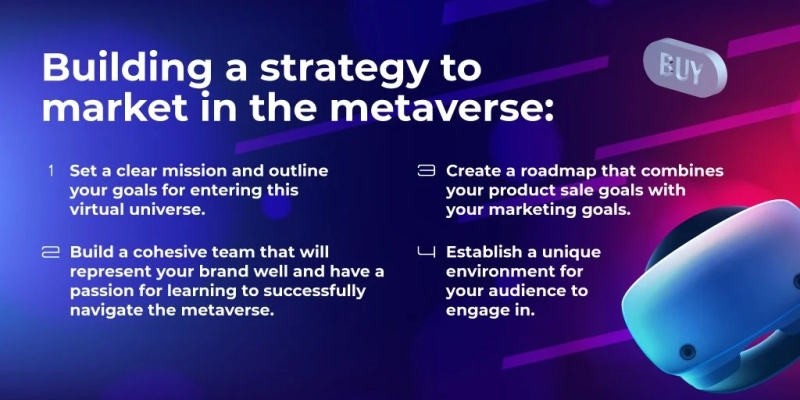
Define Your Objectives:
Clearly outline what you aim to achieve in the metaverse – whether it’s brand awareness, customer engagement, or driving sales.
1. Choose the Right Platforms:
Different virtual platforms cater to distinct audiences. Select platforms that align with your brand identity and target demographic.
2. Create Immersive Experiences:
Develop engaging and interactive experiences that resonate with users. Consider virtual events, branded environments, and gamified campaigns.
3. Invest in Virtual Commerce:
Explore opportunities for metaverse commerce, from virtual product launches to interactive shopping experiences.
4. Foster Community Engagement:
Build a community within the metaverse. Encourage user-generated content, host virtual meet-ups, and listen to your audience’s feedback.
The Future of Metaverse Marketing
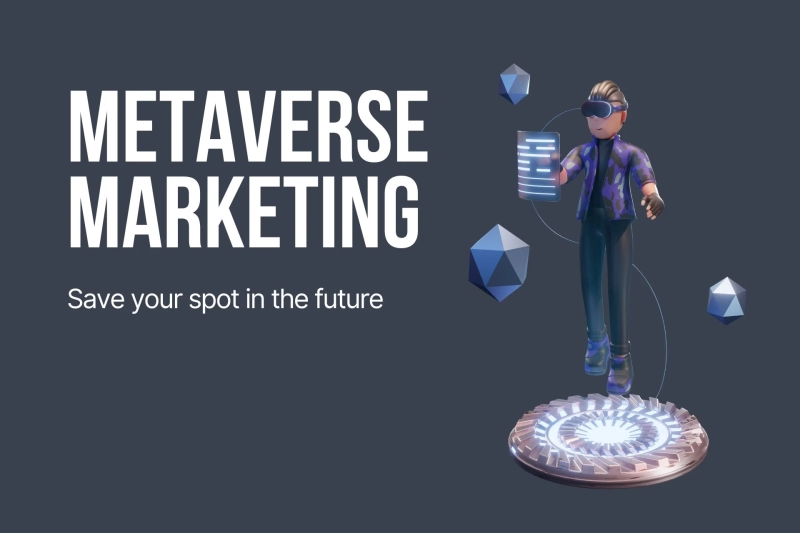
The internet is on the verge of a massive transformation, hurtling towards a fully immersive, 3D space known as the Metaverse. This isn’t just a sci-fi fantasy anymore; it’s a rapidly evolving reality with the potential to reshape everything, from how we interact to how we market.
It promises brands a new landscape to form connections, create spellbinding experiences, and custom-craft content to individual preferences.
Brands ready to harness the Metaverse Marketing Strategy are standing at the edge of a vast unexplored territory ripe for innovative campaigns and immersive engagement strategies.
Case Studies of Successful Metaverse Marketing Strategy
Let’s look at a couple of forerunners who are making waves through the Metaverse marketing strategy.
Balenciaga

To launch their Fall 2021 collection in an intriguing and captivating way, Balenciaga chose to launch it as an intriguing video game called “Afterworld: The Age of Tomorrow.”
This immersive gaming experience didn’t just showcase their new line; it transported viewers into a futuristic world where they navigated through various levels, each unfolding a different part of the collection.
This creative endeavor not only turned heads but amassed millions of views, highlighting the power of Metaverse Marketing Strategy.
Nike
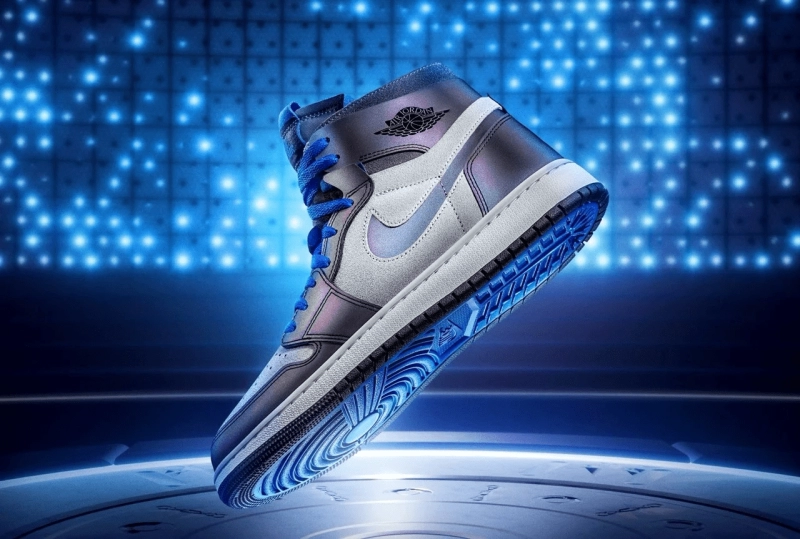
Imagine owning a pair of trendy Nike sneakers, not in reality, but in the virtual world of Metaverse. Sounds intriguing, right? Well, Nike brought this to life by securing a patent for virtual footwear.
These virtual Nikes aren’t just an avatar accessory; they allow users to enjoy the feeling of “wearing” them within the Metaverse.
This innovative approach to product marketing stands testament to how brands can leverage the Metaverse marketing strategy to create engaging, immersive experiences that are bound to leave a mark.
Gucci x Roblox
Luxury fashion brand Gucci launched a stunning virtual garden experience on Roblox, complete with branded clothing and accessories for avatars.

This creative collaboration with online creators by incorporating Metaverse Marketing Strategy allowed users to design their digital garments and participate in fashion shows, blurring the lines between physical and virtual fashion.
Wendy x Decentraland
Fast-food chain Wendy’s surprised everyone by opening a virtual restaurant in Decentraland, complete with gamified ordering and interactive features. Users can purchase virtual food items with cryptocurrency, attend live music events, and hang out with friends in a fun and quirky digital space.

This playful approach resonates with younger audiences and showcases Wendy’s willingness to embrace new technologies.
Samsung’s Virtual Influencers
Samsung has created a series of virtual influencers called “Neon” who interact with fans in the Metaverse. These AI-powered avatars promote Samsung products through interactive experiences and even collaborate with real-life celebrities.
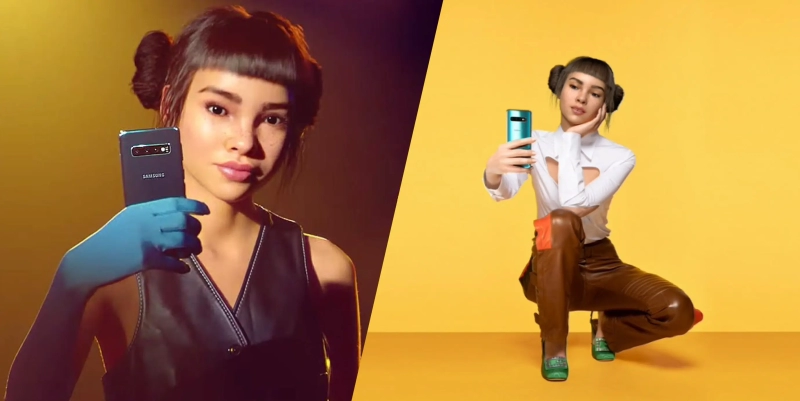
This strategy leverages the power of virtual influencers to reach younger audiences and create personalized brand experiences.
Chipotle x Roblox
Chipotle ran a fun “Lip Dub Challenge” in Roblox, encouraging users to create and share short videos of their avatars dancing to a branded song.

This user-generated content campaign not only increased brand awareness but also fostered a sense of community and engagement within the Metaverse.
Remember, the Metaverse is an exciting opportunity for brands to connect with audiences in new and meaningful ways.
By adopting the Metaverse marketing strategy and embracing innovation, you can position your brand for success in this ever-evolving digital landscape.
Don’t Miss The Metaverse Marketing Strategy Movement
The metaverse is not a passing trend; it’s a transformation in how we experience and interact with the digital world. Brands that embrace this transformation now will not only stay relevant but will also pioneer the future of marketing.
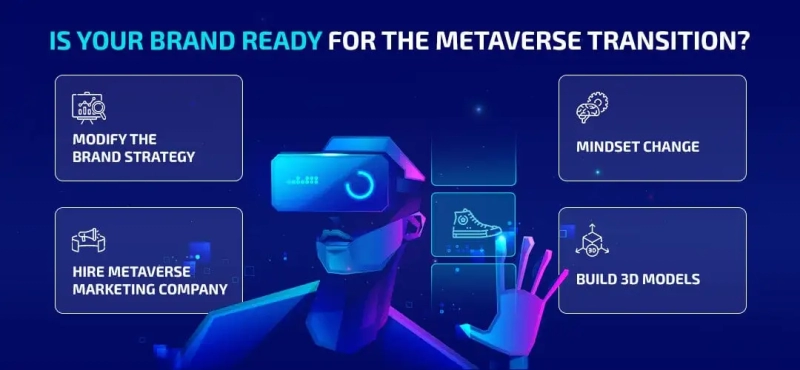
The Metaverse Marketing Strategy is calling – will your brand answer? It’s time to step into the metaverse and redefine what’s possible in the realm of digital marketing. Your audience is waiting, and the opportunities are limitless.
Buckle up, marketers! The future of the Metaverse is here, and it’s going to be a wild ride!
Don’t forget to share your metaverse marketing strategy adventures and insights in the comments below! Let’s build the future of branding together.
Conclusion
In conclusion, the imperative for brands to embrace a metaverse marketing strategy is undeniable. As technology continues to advance, consumer behaviors evolve, and virtual spaces become increasingly integrated into our daily lives, establishing a presence in the metaverse is not merely an option but a necessity for staying relevant and competitive. By leveraging the immersive and interactive nature of the metaverse, brands can forge deeper connections with their audience, foster creativity, and unlock new avenues for engagement and revenue generation. Those who hesitate risk falling behind in a rapidly evolving digital landscape. Therefore, the time to embrace the metaverse is now, as it presents a unique opportunity for brands to shape the future of marketing and redefine the way they interact with consumers in a virtual world.
Author-Raja 16
Learner of DigiSkillz, Digital Marketing Institute in Kochi.


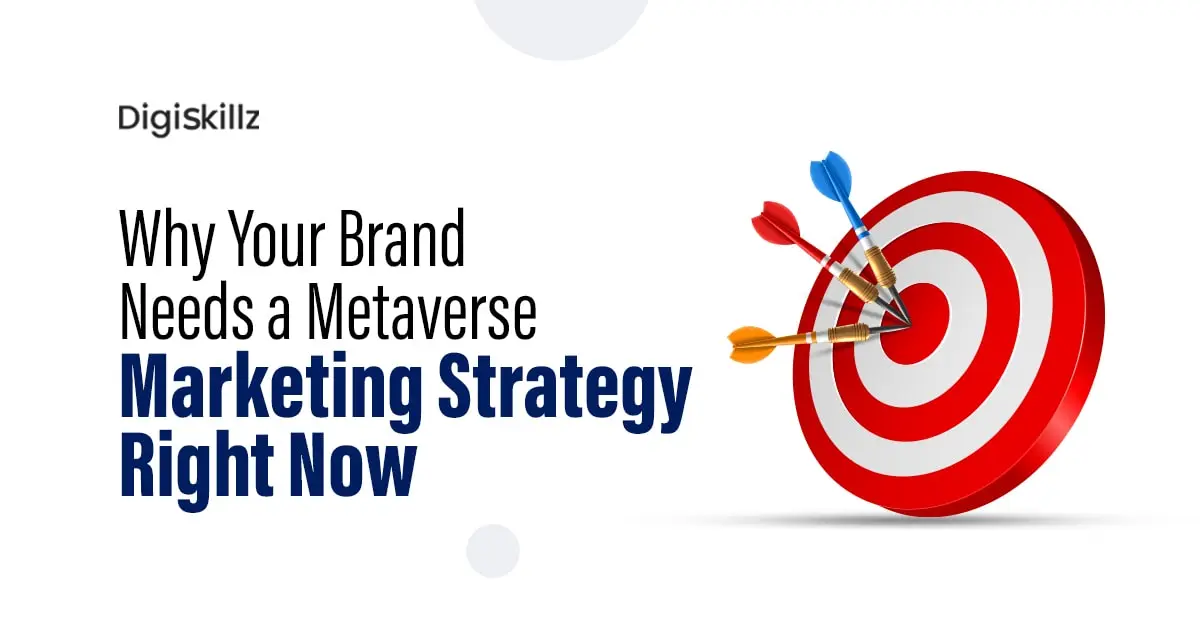
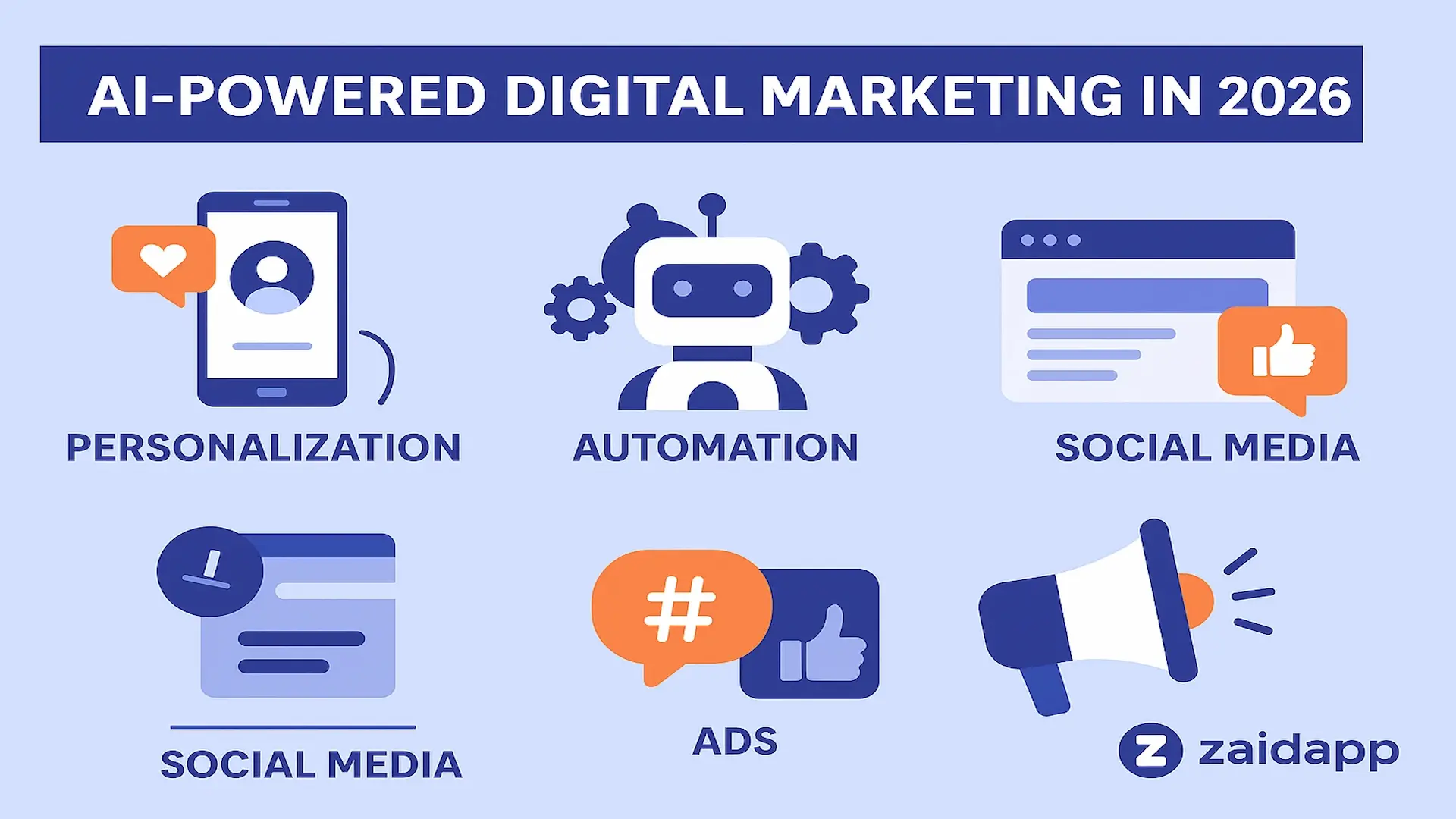



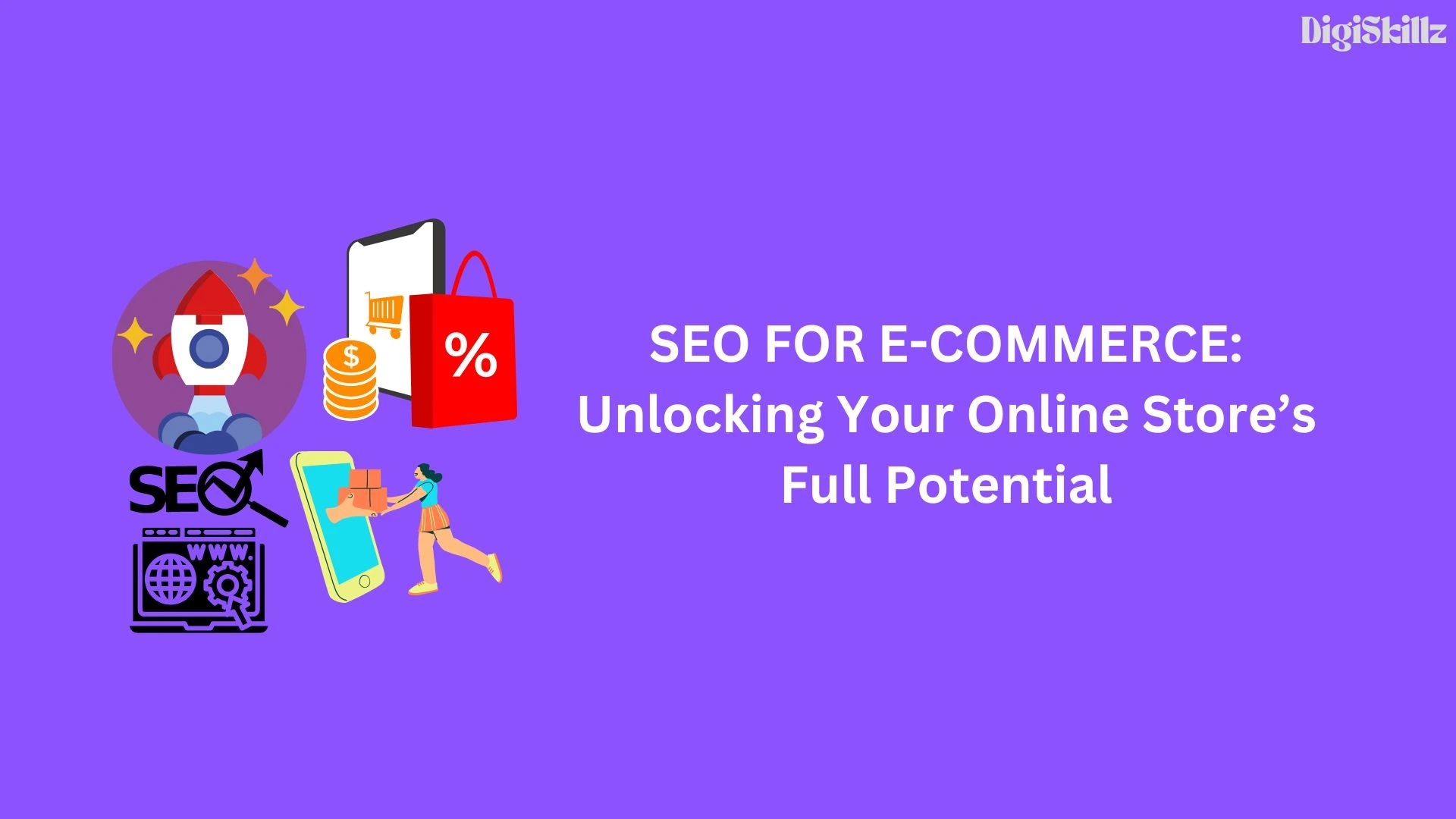
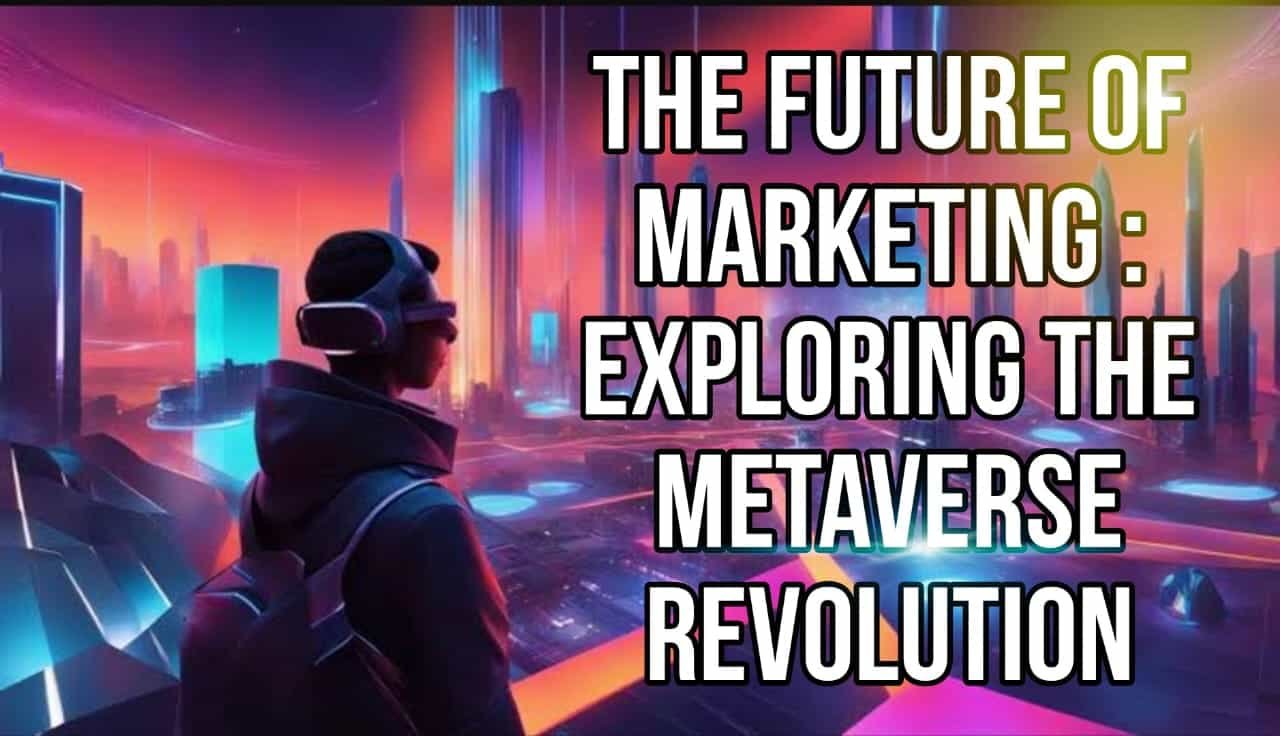


Leave A Comment